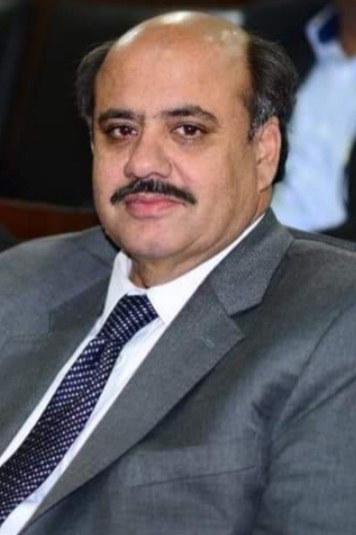By Dr. Zafar Nawaz Jaspal
Pakistan’s financial woes necessitate foreign investment to alleviate its economic suffering. Therefore, the government has devised a multipronged economic policy to attract foreign investors. Saudi Arabia has shown incredible generosity to Pakistan, encountering a severe financial crisis. On September 4, 2023, Caretaker Prime Minister Anwaar-ul-Haq Kakar claimed that Saudi Arabia will invest $25 billion in Pakistan’s various sectors, including agriculture, information technology, minerals, and mining, following a 2–5-year timeframe. Indeed, the realization of the package will assist Islamabad in addressing its financial woes, such as spiraling inflation and exorbitant petroleum and electricity prices.
Muhammed bin Salman bin Abdulaziz, Crown Prince and Prime Minister, announced the ‘Vision 2030’ economic reform plan in April 2016. One of the important pillars of Vision 2030 is to transform the country into a global investment powerhouse. He said, “We are determined to reinforce and diversify the capabilities of our economy, turning our key strengths into enabling tools for a fully diversified future. As such, we will transform Aramco from an oil-producing company into a global industrial conglomerate. We will transform the Public Investment Fund into the world’s largest sovereign wealth fund. We will encourage our major corporations to expand across borders and take their rightful place in global markets.” Hence, he is determined to ensure KSA would play a significant role in the world’s economy.
Muhammad Bin Salman announced that Riyadh’s sovereign wealth fund would take over “more than ten percent of the investment capacity of the globe.” With this mindset, he has certainly been exploring investment and trade opportunities for KSA. Simultaneously, Pakistan has struggled to increase foreign direct investment to resolve its economic problems. Moreover, the goodwill in Riyadh and Islamabad relationship makes Pakistan attractive for Saudi companies’ foreign economic ventures.
Pakistan-Saudia Arabia Cooperation
Saudis have expressed interest in Pakistan’s mineral and mining sector. The estimated worth of the country’s precious minerals is up to $6 trillion. Nonetheless, tapping deposits of minerals is arduous due to a lack of funds, bureaucratic hurdles, and a lack of mineral investment-friendly policy. To address these challenges, the government of Pakistan formed a Special Investment Facilitation Council (SIFC) in June 2023. The SIFC is designed for fast-track decision-making, i.e., one-window, one-stop, and bureaucratic red tape-free operation. From the beginning, the Council has been working to attract foreign investors, including Saudis. Notably, the Saudia Arab’s responses are promising. A few of the Saudis’ promising initiatives are discussed in the following paragraphs.
Saudi Aramco Refinery announced its investment in a greenfield oil refinery at Gwadar. On July 27, 2023, Saudi Arabia’s Aramco signed a memorandum of understanding with four Pakistani state-owned oil companies (OGDCL, PSO, PPL, and GHPL) to build a $12 billion refinery with a daily production capacity of 300,000 barrels.
Pakistan’s information technology (IT) sector potential is appealing to Saudi Arabia’s plan for digital transformation to achieve the goals of the Vision 2030 plan. Saudi Arabia’s ambassador to Pakistan, Nawaf bin Said Al-Malki, said that “The Kingdom has made a strong and secure digital infrastructure, and it has provided huge potential for cooperation between Pakistan and Saudi Arabia. On July 18, 2023, Minister of Information Technology Syed Aminul Haque opined to push Pakistan’s IT exports to $15 billion from the existing $2.6 billion over the next few years. He sounded rational because Pakistan’s IT sector demonstrated a phenomenal upward growth of 178 percent over the last five years. For instance, Pakistan’s IT exports grew from $1.29 billion in 2019 to $1.72 billion in 2020 and $2.45 billion in 2021. Realizing the thriving progression of the country’s IT, Saudi Arabia’s Prince Fahad bin Mansour launched a $100 million Saudi Arabia-Pakistan Tech House in March 2023. The joint venture aimed to create opportunities through partnerships with Pakistan’s information technology (IT) companies and enterprises. According to the agreement, Saudi Arabia will have a management preview, but coders and developers will be Pakistanis.
Saudi-based multinational Unifonic showcased its products at a three-day exhibition in September 2023, titled ‘Declaring Pakistan the Regional ICT Hub’ at the Expo Center, Karachi. Khurram Rahat, senior country director of Unifonic, said, “We have started our operations, and we see Pakistan as a big market because it’s a country with 225 million people, a very vibrant and upcoming e-commerce scenario from our perspective.”
Besides contemplating investing in the mineral and mining sectors and $100 million Saudi Arabia-Pakistan Tech House, Saudi Arabia agreed to assist Pakistan in improving its agriculture productivity. Pakistan’s agricultural productivity is far lower than the world’s best averages for major commodities due to the high cost of production, low average yield, and low-quality produce. Moreover, the absence of soil testing on farms, the unavailability and poor quality of fertilizers, loss during harvest, a lack of warehouses, machinery, and equipment, and deterioration in soil fertility have increased farmers’ woes. Saudi Arabia agreed to provide an initial $500 million investment to establish a Land Information and Management System, Center of Excellence ((LIMS-CoE), to modernize the country’s agricultural sector.
To conclude, Saudi Arabia has a promising plan to invest in Pakistan. However, to further increase Saudi’s investment in various sectors, the government needs to synchronize a few features of the country’s economic reform policy with Muhammed bin Salman’s Vision 2030.























